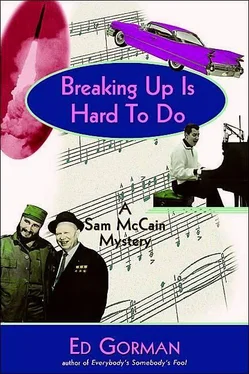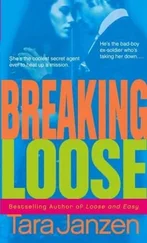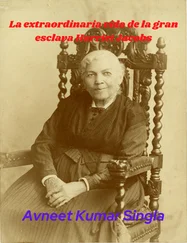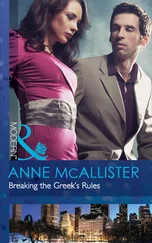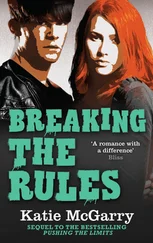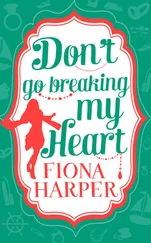I found the off-trail road the judge had described. I got out and took down the wooden crossbar and drove through the gate. I got out again, put the crossbar back in place and began the narrow, winding, strange trip into forest so deep it seemed to absorb the beams of my headlights. This time of year, autumn leaves covered everything. I kept the driver’s window down, my .45 right on the seat next to me. There was still enough wary kid in me to know that I was in the heart of an evil land. A cop I knew once told me that any time you found deep forest you’d find a human body or two that had been buried years ago and was now little more than dusty bone. If you were so inclined to spend your free hours digging. Not a pastime I’d care to indulge in.
Wooden shingled one-story house with a screened-in front porch and a steeply pitched roof. The grass was a couple of inches tall and the forest was starting to reclaim the backyard area. Ross Murdoch’s black Cadillac sedan was parked in front. My headlights gave the house a lurid bleached look, the way those photos look in true crime magazines.
I switched off the ignition, grabbed my .38 and flashlight and got out of the car. The wind off the river, which was behind a screen of birches, was hard cold. The stench was of fish.
I went to the side window and poked my flashlight right up against the glass. Murdoch hadn’t even tried to make it resemble any kind of hunting or sport cabin. It was furnished in solid middle-class New England furniture. Ethan Allen from the looks of it.
I saw nothing out of place. But I also saw no evidence of Ross. Had he gone for a walk? Was he maybe asleep in the bedroom?
I went back to the front door. Took out my handkerchief and proceeded to make my way inside without leaving any fingerprints. I stood in the living room and flipped on the wall light. Everything was dusty, including the 21-inch Admiral table model TV. The screen was opaque with dust. I called out his name several times. My voice sounded alien to me in the gloom.
A door opened on a spring that needed oiling. Then slammed shut.
The kitchen. I ran through the alcove at the other end of the dining room, straight into the dark kitchen. I flipped on the overhead light. Standard issue, like the rest of the house. Newish but dusty stove-refrigerator-counter-cupboards. The kitchen had an empty feeling to it, like a stage kitchen in a TV commercial. Open the cupboards and you’d find nothing more than mice droppings. Open the refrigerator and you’d see nothing but empty metal racks.
All this—the run through the dining room, my assessment of the kitchen—took less than half a minute. I hurried out the back door that somebody had just let slam.
The warm sweat from inside turned to frozen sweat in the cold night. Maybe ten yards separated back yard from woods. I shone my flashbeam at the dusty wall of hardwoods. There were three narrow paths between four widely separated trees. Each seemed to angle off in a sharply different direction.
I heard something, or thought I heard something. But by then it was already too late.
I was struck from behind with more violence than had ever been visited upon my head before. I’d been punched hard, struck glancingly with a piece of sturdy wood, even kicked just above the temple. But never anything like this. This was the sky falling on me.
I doubt I remained conscious for more than two seconds. There was this spike of pain that obliterated all other senses, a spike that tore through my head front to back like a bullet. And yet I somehow knew I hadn’t been shot. Something else…
And then there was just the darkness. I’m sure I didn’t help myself any by slamming my head against the frosty ground. But at least I didn’t feel it for longer than a millisecond…
Pain. Stabbing pain, numbing pain, blinding pain, pain from which there was not a moment’s escape. My senses seemed to switch on one by one. A car in the distance trying to pull away, slamming into gear, scraping a tree—hearing. The hardwood wall I’d seen before being knocked out—seeing. The cold ground, dead grass scratching my cheek—feeling. But they were all faint senses and impressions. Nothing could be as strong as the unyielding, throbbing pain.
I think it took something like two weeks to lever myself to my feet. I know I dropped to my knees a few times in the process. Then I saw the clothesline pole and crawled over to it. Good old clothesline poles. They never let you down. I wrapped my arms around it and began to pull myself to my feet. Good old clothesline pole. I hung on to it like a drunk in an old vaudeville sketch hanging on to a street light.
I stood there a good long time. I wasn’t sure if the pain lessened or I was simply adjusting to it. Still a raw bitch of malice and mendacity and torture. But not quite as bad as it had been when I’d first come to.
I managed to light a cigarette. And after a few minutes I saw the rock. It took me a few more minutes to reach it, to grasp it in my hand. It was the size of a hardball but jagged. One edge of it had a healthy sampling of my hair, blood and scalp on it. A perfect weapon.
I let it drop to the ground and then I turned to face the house. I needed to go back in there and finish looking around. Maybe my assailant had left something behind.
I moved carefully, trying not to generate more pain.
The lights were out. I went into the darkness. The door of a small metal fusebox was open in the kitchen. I was able to see what my assailant had done. Had run out the back door, circled around to the front of the house, come back inside just as I was leaving, pulled the fuse from the box and got rid of it, and then eased outside where he launched the rock. The Cubs could use a pitcher this good.
I finished looking through the house with my flashlight.
There wasn’t any shock when I found him. I’d pretty much expected to find him. I couldn’t tell you why. Just some sense of where this whole thing was going, all the information of the past two days starting to assume a recognizable shape.
I found Ross Murdoch sitting on the toilet with the lid down. I was glad that my beam was narrow. I wouldn’t have wanted to see it all. He’d used a .38 and a good half of his head was adhered to the wall behind him in patches of hair and slime and streaky splashes of blood. What remained of his head was angled to the right, resting on his shoulder as if his neck had been snapped in some remarkable way. The gaze of the dead eyes was a roadkill gaze—that awful look of eternal shock and terror you see on possums and raccoons and squirrels that have been run over.
His right arm was flung across the sink. The .38 dangled from his finger.
I looked around for a note he might have left, even though I was pretty sure this hadn’t been any suicide. No note, of course.
I looked for footprints, fingerprints, smudges, anything that would help tell the story of what had happened in this bathroom. The roomness suddenly got to me. The ghosts of it. Pretty ladies daubing on makeup in the mirror above the sink. Adulterous men taking nervous stock of themselves in the same mirror. Women crying, drunks trying to sober up with face splashes of ice-cold water, somebody being sick. And now this dead man. This would alter the small room forever. The energy of it, those ghosts that record every single moment of every single room they haunt.
I went to the kitchen and worked on my wound as well as I could. It hurt like hell to touch it even with a warm wet rag. I sat down and smoked another cigarette and consciously tried to gather myself. There was no phone. I would have to go back to town to find one. I’d put the top down. I’d freeze but it would sharpen my senses.
There wasn’t any point in looking at him again. There wasn’t any point in staying around. There wasn’t any point in denying the thought that had been taking shape since I’d been in Peggy Leigh’s office earlier—and since I’d gotten the phone call from Janice Wilson. That Deirdre could easily have left the hospital at any time during her scheduled hours—and come back without anybody noticing. Especially if she moved quickly enough.
Читать дальше
